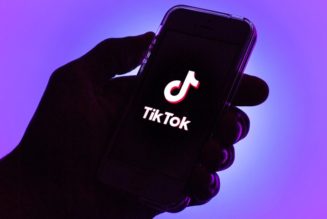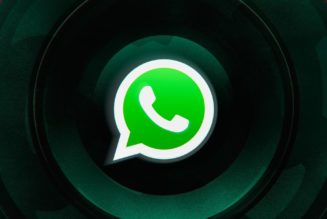
Mark Twain is credited with first saying that if you don’t like the weather in New England, just wait five minutes. The TikTok deal has followed a similar schedule.
On Friday, President Trump said downloads of TikTok would be banned from mobile app stores on Sunday, potentially preventing users from receiving critical security updates.
On Saturday, Trump said he supported Oracle’s bid to acquire a stake in TikTok and oversee some of its operations, and extended the ban date to September 27th. As part of the deal, he said, the companies involved had agreed to contribute $5 billion for “patriotic education.”
On Sunday, everyone involved took a well deserved rest. And as Monday dawned, everything went to hell.
Everyone agrees that Oracle and Walmart have bought a combined 20 percent of TikTok. But the remaining 80 percent appears to be up for grabs. Here are Georgia Wells and Alex Leary in the Wall Street Journal:
People involved in the deals have provided differing accounts over the structure of the remaining stake, with a spokesman for ByteDance Ltd., TikTok’s Beijing-based owner, saying Sunday that ByteDance would directly hold an 80% share of the new TikTok entity before an expected initial public offering.
Early Monday, Oracle issued a statement seeming to contradict that. “Upon creation of TikTok Global, Oracle/Walmart will make their investment and the TikTok Global shares will be distributed to their owners, Americans will be the majority and ByteDance will have no ownership in TikTok Global,” Oracle executive vice president Ken Glueck said.
The disagreement over such basic terms of the deal shows the fluid status of the talks even after Mr. Trump on Saturday said he had approved the agreement in principle. It threatens to disrupt the carefully brokered pact, which could also be blocked by the Chinese government.
If ByteDance retains 80 percent control over the company, as it asserts, that would undermine the stated purpose of the deal — which was to, you know, force ByteDance to give up control of TikTok.
On the other hand, if ByteDance is forced to give up control, China seems likely to block the deal.
All of which would seem to leave us more or less where we were when the weekend began: scanning the horizon, waiting for the weather to change.
I am famously bad at making predictions about TikTok, but I’ll tempt fate and tell you how I’m thinking here. Last week, I wrote that TikTok’s deal with Oracle was a bet that Trump would cave on concerns over China. “ByteDance has essentially called Trump’s bluff,” I wrote, “wagering that he will accept the deal, reward a loyal friend in Oracle, and declare total victory. This … does not seem like a bad bet?”
In fact, on Saturday it appeared as if ByteDance had played its hand perfectly. “President Trump pronounced the agreement a success and blessed it,” the New York Times noted, “saying on Saturday that TikTok would ‘have nothing to do with China, it’ll be totally secure, that’s part of the deal.’”
Trump clearly bungled that nothing-to-do-with-China detail, but bungling details is consistent with all of the president’s public remarks about the deal. Calling in to Fox and Friends on Monday morning, Trump continued to assert that Oracle and Walmart would have “total control” over TikTok, and that he would block the deal otherwise.
Despite the uncertainty these remarks have generated, it still seems to me to be more likely than not that Trump will approve the deal. By threatening to ban TikTok without any real due process, the authoritarian president was able to flex his power. By forcing a structural change within ByteDance, however insignificant, he can continue to claim total victory — while glossing over all the details or lying about them, just as he did on TV Monday morning.
And by getting two stodgy old legacy businesses a big stake in a fast-growing consumer app, Trump can reward two of his more high-profile loyalists — Oracle founder Larry Ellison, who has raised money for the president, and Walmart CEO Doug McMillon, who serves on Trump’s coronavirus task force. “Oracle and Larry Ellison are great, great company, great guy,” Trump said this morning. “And as you know Walmart is Walmart, it’s great.”
If you thought that Trump’s negotiations with ByteDance were about producing some specific outcome, you might imagine that he would blanch at the terms the company has reached with its investors. But if you assume, as I did, that his negotiations were primarily about projecting power and influence, whatever reality lurked in the details, then all of this is proceeding more or less to plan.
There are still some big questions here — what happens to the ubiquitous Chinese app WeChat, which also faces a ban, is probably the most pressing. And it’s possible some new change in the weather causes Trump to follow through on his threat to block the deal anyway. But so far the most cynical take about Trump and TikTok has been the correct one — and cynicism suggests the president will want to see this mugging through.
Of course, there will be consequences. Chinese state media has already suggested that the nationalist splintering of the internet represented by this move ought to serve as a new global model for regulation, and the country is working on a broader plan for retaliating against the United States, the Wall Street Journal reported. And Trump’s flouting of the rule of law, however often we have seen it in these past four years, suggests even darker developments to come.
In its initial public statement on the deal, Walmart published a typo that, when read out loud, communicated a kind of anguished cry: “Ekejechbecehggedkrrnikldebgtkjkddhfdenbhbkuk.” Contemplating this chaotic TikTok deal and all it represents, all I can say is that Ekejechbecehggedkrrnikldebgtkjkddhfdenbhbkuk is right.
The Ratio
Today in news that could affect public perception of the big tech platforms.
Trending up: Facebook says it’s helped 2.5 million people register to vote across Facebook, Instagram, and Messenger in time for the 2020 US election. The company has set a goal to help four million people register to vote this year. (Jay Peters / The Verge)
Trending down: Twitter is investigating claims of racial bias in how its algorithm selects photo previews. The news comes after multiple users posted examples that showed Twitter’s preview of a photo more frequently displayed a white person, in images that featured a photo of a Black person and a photo of a white person. (Rachel Kraus / Mashable)
Governing
⭐ Facebook tried to crack down on QAnon with new policies targeting extremist content. But groups related to the conspiracy theory are still flourishing on the site. Sheera Frenkel and Tiffany Hsu at The New York Times have the story:
The QAnon movement has proved extremely adept at evading detection on Facebook under the platform’s new restrictions. Some groups have simply changed their names or avoided key terms that would set off alarm bells. The changes were subtle, like changing “Q” to “Cue” or to a name including the number 17, reflecting that Q is the 17th letter of the alphabet. Militia groups have changed their names to phrases from the Bible, or to claims of being “God’s Army.”
Others simply tweaked what they wrote to make it more palatable to the average person. Facebook communities that had otherwise remained insulated from the conspiracy theory, like yoga groups or parenting circles, were suddenly filled with QAnon content disguised as health and wellness advice or concern about child trafficking.
Twitter expanded its restrictions on QAnon-linked accounts to include political candidates and elected officials who promote the conspiracy theory. In July, the company banned more than 7,000 QAnon-linked accounts, but its enforcement policy was murky when it came to elected officials. (Jack Brewster / Forbes)
Policies around coordinated inauthentic behavior are vaguely written, flexibly interpreted, and inconsistently applied on Facebook and Twitter. The lack of clarity leaves platforms open to charges of bias in moderating speech. (Shannon McGregor / Wired)
Disinformation campaigns require a lot of human effort — but artificial intelligence could change all that. Tools like GPT-3 that generate text in a way that can credibly imitate humans could make the supply of disinformation infinite. (Renée DiResta / The Atlantic)
YouTube has been tweaking its recommendation algorithm to stop misinformation from going viral. It’s worked — the algorithm is less likely now to promote misinformation. But with the president of the United States spreading conspiracy theories, it still might not be enough. (Clive Thompson / Wired)
As TikTok becomes a destination for political content, the company is taking a different approach to content moderation than Facebook or Twitter. It has opted against using fact-checking labels and is simply quietly removing lots of content, the company says. (Elizabeth Culliford / Reuters)
A network of Facebook Pages operated by Guinean president Alpha Condé’s political party shows the blurry line between modern campaigning and coordinated inauthentic behavior. In the run up to a crucial presidential election in October, a network of 94 Facebook Pages has been spreading pro-Condé messages to a combined 800,000 followers. Facebook said the campaign did not meet its threshold for coordinated inauthentic behavior. (Stanford Internet Observatory)
A suspicious Facebook account posting political content about the George Floyd protests appears to be linked to a school board candidate in Texas. (Mark Dent / Fort Worth Star Telegram)
Facebook is threatening to leave Europe if regulators don’t back down. The move is a response to a preliminary order handed down last month to stop the transfer of data about European customers to servers in the US. (David Gilbert / Vice)
The European Union is considering new rules that would likely require Apple to give competitors access to payments technology in the iPhones. The new laws would prevent phone manufacturers from limiting access to near-field communication technology embedded in smartphones and smartwatches. (Natalia Drozdiak and Alexander Weber / Bloomberg)
A judge in California stopped the Trump administration’s ban on downloads of WeChat over the weekend. The move blocks the Commerce Department from forcing Apple and Google to remove WeChat from their app stores. (Amanda Macias / CNBC)
In the run up to the WeChat ban, downloads of the app surged to make it the 100th most-downloaded app in the US. It has typically ranked between 1,000th and 1,500th this year. (Gerrit De Vynck / Bloomberg)
Here’s where Donald Trump and Joe Biden stand on Big Tech regulation. Both see the need for more regulation and want to change Section 230, but they differ on the solutions. (John D. McKinnon and Ryan Tracy / The Wall Street Journal)
The tech industry’s inability to properly calculate risk has led to a series of high-profile tech disasters over the last decade, this piece argues. Facebook’s slow response to the threat of ethnic cleansing in Myanmar is the textbook example. (Catherine Buni and Soraya Chemaly / OneZero)
The Federal Trade Commission and the Department of Justice don’t have enough funding to adequately regulate the tech giants. Antitrust divisions at the departments have a combined annual budget below what Facebook makes in three days. (Alex Kantrowitz / Big Technology)
Google’s decision to block online advertising trackers in an effort to protect user privacy has come under scrutiny in the antitrust probe. Publishers who rely on the trackers are telling the Justice Department that the move would hurt their sites and indirectly benefiting Google’s own ad business. (Nick Bastone / The Information)
Iranian hackers likely connected to the government have been running a surveillance campaign with tools that can outsmart encrypted messaging apps like Telegram. The operation targets domestic dissidents and antigovernment activists abroad, but can also be used to spy on the general public inside Iran. (Ronen Bergman and Farnaz Fassihi / The New York Times)
As COVID-19 cases surge in France, the government is looking to resurrect its failed contact tracing app. While most countries that built such apps used the contact tracing API designed by Apple and Google, France designed its own solution. The results were dismal. (Chris O’Brien / Venture Beat)
Industry
⭐ TikTok is giving boring businesses a chance to go viral. Clips of seemingly dull jobs like landscaping, car detailing, and power washing regularly rack up millions of views on the platform. The Verge’s Jacob Kastrenakes has more:
The best small business videos capture your attention with something new and unexpected, like a sawed-off wedge of wood falling out of a huge tree or bright pink lip gloss flowing from a stark white machine. They take you behind the scenes of a small world you’d otherwise know nothing about — and may not have even known you could seek out.
“I didn’t realize that people might not know what I do exists,” said Erika Thompson, who operates the Austin-based Texas Beeworks. A recent video shows Thompson in jeans and a tank top — “the veil, suit, and gloves cause you to lose a lot of dexterity” — taking a tree branch covered in a thick swarm of bees and banging it against a box, toppling the bees into the hive-like storage structure below. “Bees have pretty tough exoskeletons, so the short drop doesn’t harm them at all,” Thompson says in the video.
Facebook is giving people more control of where their images end up. In an update to its rights management platform, the company is starting to work with partners to give them the power to claim ownership over images and then moderate where those images show up across Facebook and Instagram. (Ashley Carman / The Verge)
Facebook is opening an office in Lagos, Nigeria. The office will be home to teams including engineering, sales, and policy and communications. (Facebook)
Why isn’t Slack dominating during the pandemic? The company is experiencing the peril of disruptor expectations, this piece says. (Rob Walker / Marker)
Things to do
Stuff to occupy you online during the quarantine.
Make a plan to vote and sign up to work the polls if you can.
And finally…
iOS 14 let’s you re-do app icons so naturally remade them all much worse in MS paint style
Sorry to all app icon designers that spent years making them nice pic.twitter.com/bsa0E5VvSy
— Thomas Reisenegger.gif (@Olima) September 20, 2020
im not customizing my home screen i am 24 years old
— megan (@chismosavirus) September 20, 2020
Talk to us
Send us tips, comments, questions, and TikTok deal theories: casey@theverge.com and zoe@theverge.com.









